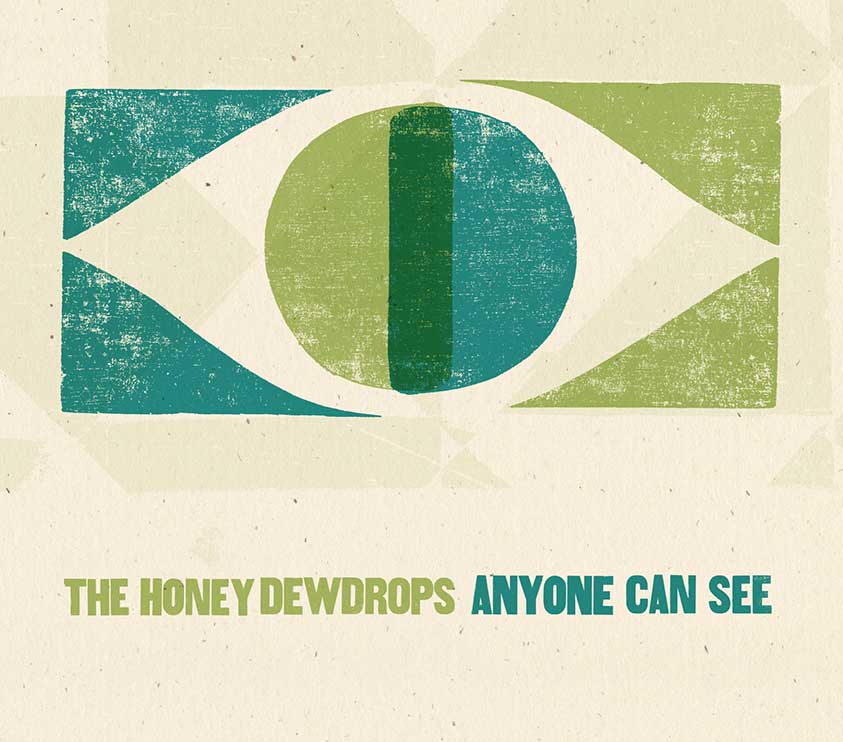The Honey Dewdrops Weave Compassion and Meaningful Storytelling on ‘Anyone Can See’

Compassion is at the root of The Honey Dewdrops’ Anyone Can See, the fifth independent album release from the euphonious folk duo of Kagey Parrish and Laura Wortman. Built on a foundation of soothing melodies and pure harmonies, the duo weaves humane responses to topics ranging from their evolving Baltimore neighborhood to the immigration debate with introspective lyrics.
The duo exemplifies this with “Welcome to the Club,” inspired by their eclectic Baltimore suburb of Hampden. While they add a taste of local flavor with a mention of the now-shuttered Dimitri’s Tavern, they take elements of their ever-changing neighborhood and find a deeper meaning. “If sometimes you don’t have a clue … and you can’t see back to where you come from … you’re now among every member of the human race who ever was … it’s a pretty good club to be a member of, the door’s open any time you need a hug,” they harmonize softly.
They continue to pack vivid storytelling into “Rainy Windows,” where the melody serves as a comforting backdrop for the frequent inclement days they experience in Baltimore. The song emits melancholy, eliciting images of someone looking through the rain-soaked glass and feeling closed off from the world. “Rainy windows, ain’t no mystery, anyone can see, except for you, I’m getting worried about you,” Wortman and Parrish sing tranquilly. They embrace the notion of selflessness on “For One More,” using the song as a source of empathy for immigrants, with the mindset that there’s endless opportunity for acceptance. “There’s always a smile and a warm embrace … I don’t care what some may say … the door will always open for one more,” an altruistic lesson the world desperately craves captured in a calming acoustic melody and voices to match.
Where they truly demonstrate the power of peacefulness is through “Going Rate,” contributing their own gentle message to the protests of the death of Freddie Gray, a young black man who died after suffering injuries while in police custody in 2015, sparking intense protests across the country, particularly in their home city, where a multi-day curfew was enacted. They use potent, yet benevolent words to make the powerful statement: “we don’t want to mourn one more loss … one more soul foreclosed, stolen in distress … these days, what is the going rate a body brings.” Meanwhile, the line “the city burning brightly” transports the listener into the action, making you feel as though you’re watching the city fight for justice, the duo conveying this strong story with just an acoustic guitar and their sobering voices.
Parrish and Wortman have created a well-rounded album with Anyone Can See, as exemplified by their cover of the Hank Williams classic “Ramblin’ Man,” one of the album’s highlights. Their rendition draws out the soul in both of their voices, recognizing the grittiness of the original song, while Parrish emulates Williams’ signature yodel with his own serene voice.
The duo were intentional about preserving the chemistry they exude in their live show on the album, sitting close together during the recording process, allowing the intimacy of their voices and passion for the music tell these stories. With Anyone Can See, The Honey Dewdrops prove that the magic of their artistry is in their ability to impart a sense of compassion in listeners while delivering meaningful messages with a purity that’s so rare to encounter.



